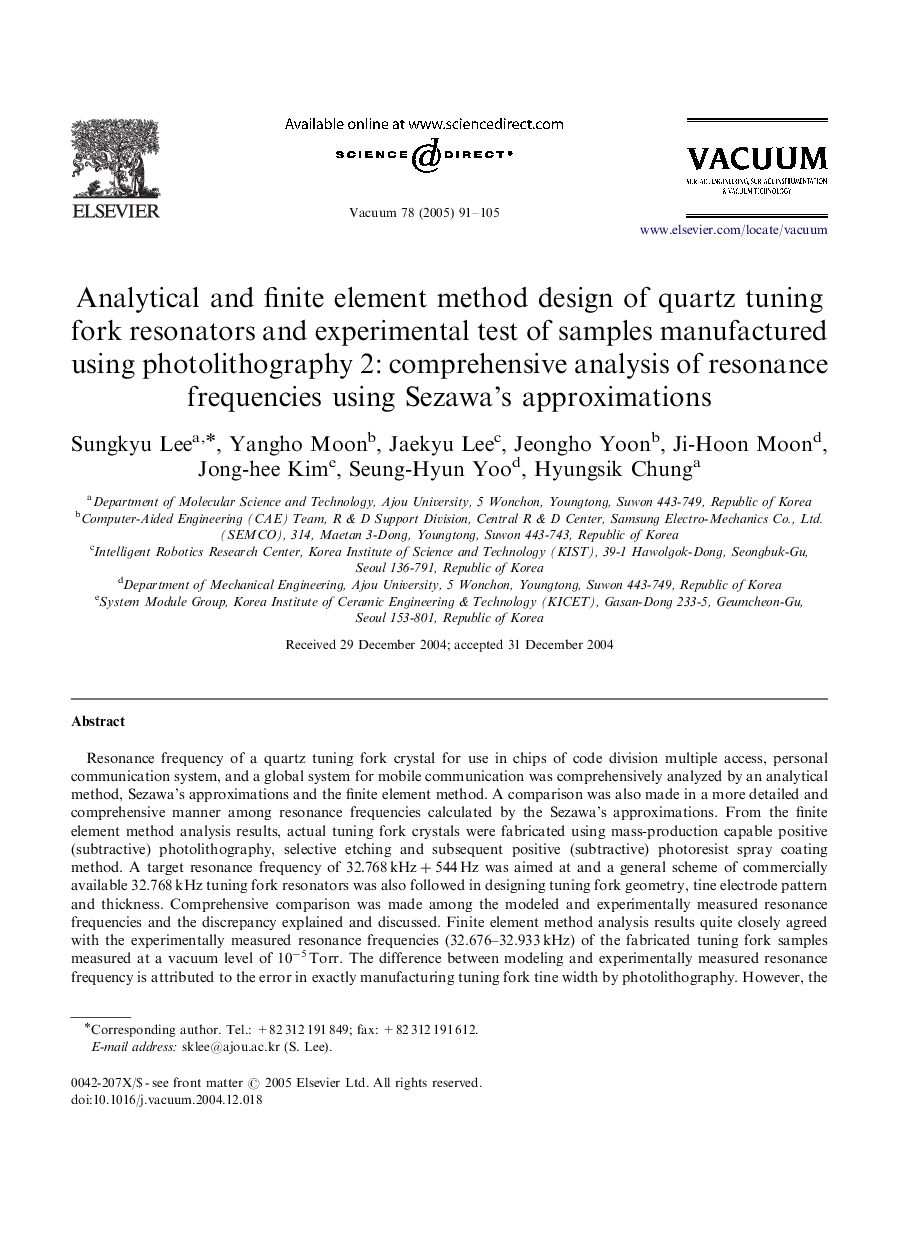| Article ID | Journal | Published Year | Pages | File Type |
|---|---|---|---|---|
| 10676182 | Vacuum | 2005 | 15 Pages |
Abstract
Resonance frequency of a quartz tuning fork crystal for use in chips of code division multiple access, personal communication system, and a global system for mobile communication was comprehensively analyzed by an analytical method, Sezawa's approximations and the finite element method. A comparison was also made in a more detailed and comprehensive manner among resonance frequencies calculated by the Sezawa's approximations. From the finite element method analysis results, actual tuning fork crystals were fabricated using mass-production capable positive (subtractive) photolithography, selective etching and subsequent positive (subtractive) photoresist spray coating method. A target resonance frequency of 32.768kHz+544Hz was aimed at and a general scheme of commercially available 32.768Â kHz tuning fork resonators was also followed in designing tuning fork geometry, tine electrode pattern and thickness. Comprehensive comparison was made among the modeled and experimentally measured resonance frequencies and the discrepancy explained and discussed. Finite element method analysis results quite closely agreed with the experimentally measured resonance frequencies (32.676-32.933Â kHz) of the fabricated tuning fork samples measured at a vacuum level of 10â5Â Torr. The difference between modeling and experimentally measured resonance frequency is attributed to the error in exactly manufacturing tuning fork tine width by photolithography. However, the tuning fork design using finite element method modeling must be modified comprehensively to optimize various design parameters affecting both the resonance frequency and other crystal parameters, most importantly crystal impedance (series resistance).
Keywords
Related Topics
Physical Sciences and Engineering
Materials Science
Surfaces, Coatings and Films
Authors
Sungkyu Lee, Yangho Moon, Jaekyu Lee, Jeongho Yoon, Ji-Hoon Moon, Jong-hee Kim, Seung-Hyun Yoo, Hyungsik Chung,
